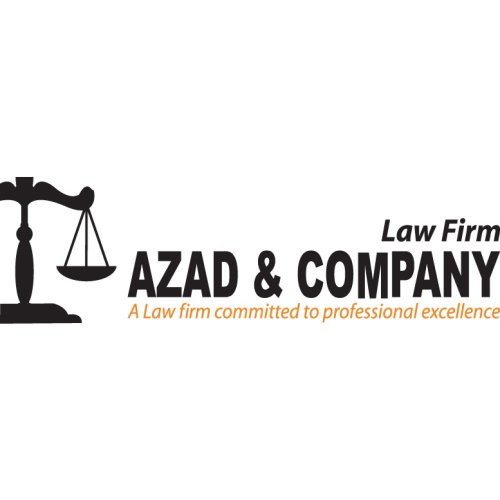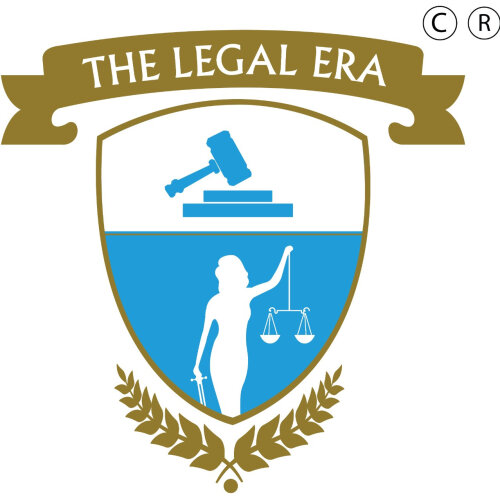Best Public-Private Partnerships (PPP) Lawyers in Bangladesh
Share your needs with us, get contacted by law firms.
Free. Takes 2 min.
Or refine your search by selecting a city:
List of the best lawyers in Bangladesh
About Public-Private Partnerships (PPP) Law in Bangladesh
Public-Private Partnerships (PPP) in Bangladesh refer to collaborative ventures between government entities and private sector participants intended to finance, build, and operate projects typically related to infrastructure and public services. The Bangladesh government has adopted a robust policy framework to promote PPP as a solution for infrastructural development, service delivery, and economic growth. The aim is to combine the strengths of both sectors, leveraging private sector efficiency and capital, alongside public sector oversight and accountability, to achieve large-scale developmental goals.
PPP initiatives in Bangladesh are governed by formal legal and regulatory structures, managed primarily under the authority of the Public-Private Partnership Authority (PPPA), a government agency responsible for promoting, developing, and facilitating PPP projects. The legal environment is designed to offer transparency, mitigate risk, and ensure that contractual relationships between public and private entities are fair and beneficial to all stakeholders.
Why You May Need a Lawyer
Engaging in a PPP project involves intricate negotiations, compliance with regulatory obligations, and a thorough understanding of commercial and contractual law. Here are some common situations where legal assistance is vital:
- Reviewing and drafting complex PPP contracts
- Understanding eligibility and bidding criteria for private sector participation
- Negotiating terms between public and private partners to balance risks and rewards
- Ensuring compliance with all applicable laws, procurement rules, and government policies
- Managing disputes or disagreements throughout the life of a PPP project
- Advising on land acquisition, transfer of ownership, or concessions provided in PPP arrangements
- Addressing regulatory, tax, or environmental implications of proposed projects
A lawyer experienced in PPP law can help safeguard your interests, clarify your legal position, and guide you through the procedural and bureaucratic aspects of implementing a PPP project.
Local Laws Overview
The primary legal instruments guiding PPPs in Bangladesh include the Public-Private Partnership Act, 2015 and related policy documents such as the PPP Policy and Strategy (2010). The Public Procurement Rules, 2008 are also relevant, as are sector-specific regulations depending on the nature of the project.
Key points of local law include:
- Establishment and empowerment of the Public-Private Partnership Authority (PPPA) as the central agency overseeing PPP activities
- Clear procedures for identification, approval, and implementation of PPP projects
- Transparent selection mechanisms for private partners, including competitive bidding and negotiation processes
- Guidelines on project financing, roles and responsibilities of parties, and frameworks for risk allocation
- Regulations addressing dispute resolution, typically favoring arbitration or alternative dispute mechanisms
- Provisions for government support, such as viability gap funding, guarantees, or tax incentives, where necessary
- Requirements for compliance with environmental and social impact assessments
Understanding these laws is essential for navigating the PPP landscape successfully and for minimizing legal and financial risks.
Frequently Asked Questions
What is a Public-Private Partnership (PPP)?
A PPP is a contractual arrangement between a public sector authority and a private party to finance, construct, operate, and maintain projects or provide services that have traditionally been delivered by the public sector.
Who regulates PPPs in Bangladesh?
The Public-Private Partnership Authority (PPPA), operating under the Prime Minister's Office, is the main regulatory body for PPP projects in Bangladesh.
Which types of projects are commonly implemented under PPP in Bangladesh?
Typical PPP projects include roads and highways, energy and power plants, ports, water supply, waste management, urban development, and healthcare facilities.
What laws govern PPPs in Bangladesh?
The Public-Private Partnership Act, 2015 is the primary legislation, supplemented by the PPP Policy and Strategy (2010), the Public Procurement Rules, 2008, and sector-specific regulations.
How are private partners selected for PPP projects?
Selection is generally conducted through a transparent, competitive bidding process managed according to established procurement guidelines, although direct negotiations may be permitted in some compelling circumstances.
What benefits do PPPs offer to private investors?
PPPs often provide private investors with long-term revenue streams, risk-sharing with the public sector, potential government incentives, and the opportunity to participate in large-scale projects that may otherwise be unattainable.
What risks are associated with PPP projects?
Key risks include political or regulatory changes, financial uncertainties, demand or usage fluctuations, and complexities in land acquisition or obtaining necessary permits and licenses.
How are disputes in PPP agreements resolved?
Disputes are typically resolved through arbitration or other agreed-upon alternative dispute resolution mechanisms, as defined in the contract and under the relevant laws.
Are foreign investors allowed to participate in PPPs?
Yes, foreign investors can participate in PPP projects in Bangladesh, subject to compliance with relevant laws, investment guidelines, and sector-specific regulations.
Do PPP projects require environmental clearance?
Yes, most PPP projects, especially those impact large-scale infrastructure or community development, require prior environmental and social impact assessments and necessary clearances from government agencies.
Additional Resources
If you need further guidance or official information, the following resources and organizations can be helpful:
- Public-Private Partnership Authority (PPPA) - The main agency overseeing coordination, support, and approval of PPP projects
- Investment Promotion and Financing Facility (IPFF) under Bangladesh Bank - Provides financing assistance for PPP projects
- Bangladesh Investment Development Authority (BIDA) - Offers guidance for investors including PPP participants
- Relevant ministries (e.g., Ministry of Road Transport and Bridges, Ministry of Power, Energy and Mineral Resources) for sector-specific regulations and opportunities
Next Steps
If you are considering participating in a PPP project in Bangladesh or are currently facing legal questions related to an existing partnership, it is important to:
- Identify your role and interest in the project (public, private, financier, etc)
- Collect all relevant documents, including project details, contracts, official notices, and correspondence
- Seek the advice of an experienced lawyer specializing in PPPs, infrastructure law, or public procurement in Bangladesh
- Prepare a list of your specific questions and concerns for your legal consultation
- Engage early to ensure compliance, mitigate risks, and structure deals effectively
- Follow up with relevant authorities or agencies as needed, guided by your legal counsel
Taking these steps can help protect your interests and lead to successful participation in Bangladesh's expanding PPP sector.
Lawzana helps you find the best lawyers and law firms in Bangladesh through a curated and pre-screened list of qualified legal professionals. Our platform offers rankings and detailed profiles of attorneys and law firms, allowing you to compare based on practice areas, including Public-Private Partnerships (PPP), experience, and client feedback.
Each profile includes a description of the firm's areas of practice, client reviews, team members and partners, year of establishment, spoken languages, office locations, contact information, social media presence, and any published articles or resources. Most firms on our platform speak English and are experienced in both local and international legal matters.
Get a quote from top-rated law firms in Bangladesh — quickly, securely, and without unnecessary hassle.
Disclaimer:
The information provided on this page is for general informational purposes only and does not constitute legal advice. While we strive to ensure the accuracy and relevance of the content, legal information may change over time, and interpretations of the law can vary. You should always consult with a qualified legal professional for advice specific to your situation.
We disclaim all liability for actions taken or not taken based on the content of this page. If you believe any information is incorrect or outdated, please contact us, and we will review and update it where appropriate.
Browse public-private partnerships (ppp) law firms by city in Bangladesh
Refine your search by selecting a city.

















